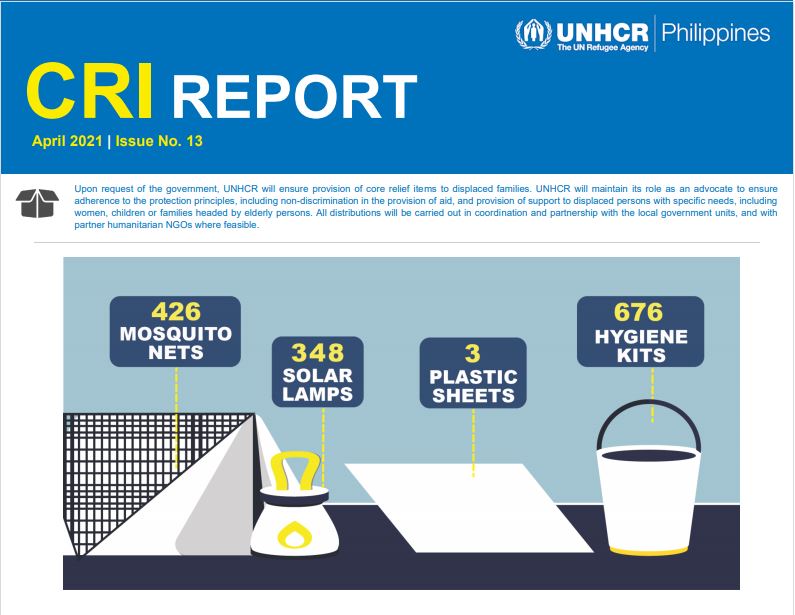UNHCR Philippines CRI Report (April 2021) Issue No. 13
Amidst the ongoing crisis and profound challenges brought about by the COVID-19 pandemic, UNHCR is in close coordination with the government and Protection partners in the provision of essential goods and services to displaced families in Mindanao. As of this reporting, UNHCR has delivered and distributed Core Relief Items (CRIs) to approximately 5,153 beneficiaries in Maguindanao.
Core Relief Items (CRI) distribution in Zamboanga City
UNHCR, in partnership with National Commission on Indigenous Peoples- Zamboanga Sub-office and Commission on Human Rights Region IX, distributed hygiene kits to 250 Sama Bajau families (1,623 individuals) in Zamboanga City who are among the most vulnerable during the COVID-19 pandemic, as these families are staying in high-density settlements. These families have also been at risk of being stateless.
CRI distribution in Datu Saudi Ampatuan, Maguindanao
UNHCR, through project partner CFSI, distributed hygiene kits, mosquito nets, plastic sheets and solar lamps to 68 displaced families (approximately 340 individuals) in Datu Saudi Ampatuan Municipality, Maguindanao Province. These families remain displaced due to insecurities of returning to their places of origin as a result of the recent clashes between government troops and the Bangsamoro Islamic Armed Forces-Moro Islamic Liberation Front.
CRI distribution in Kabuntalan, Maguindanao
UNHCR, through project partner CFSI, distributed solar lamps to 280 families (approximately 1,400 individuals) in Barangay Butiren, Municipality of Kabuntalan in Maguindanao Province. Most of these families have repeatedly been displaced for the past 20 years due to armed conflict between the military and the Moro National Liberation Front. Hygiene kits and mosquito nets were also distributed to 358 displaced families (approximately 1,790 individuals) in Kabuntalan Municipality, Maguindanao Province who were displaced due to clan feud that originated from the Municipality of Talitay, Maguindanao Province.
Please download the CRI Report (April 2021) Issue No. 13 for more information.

